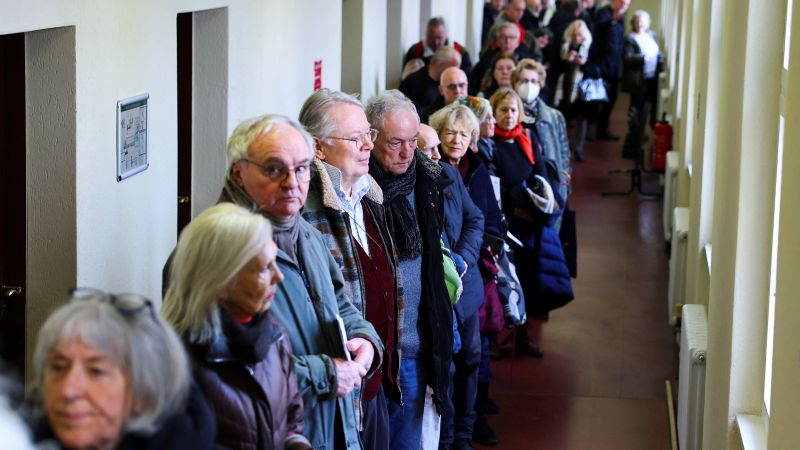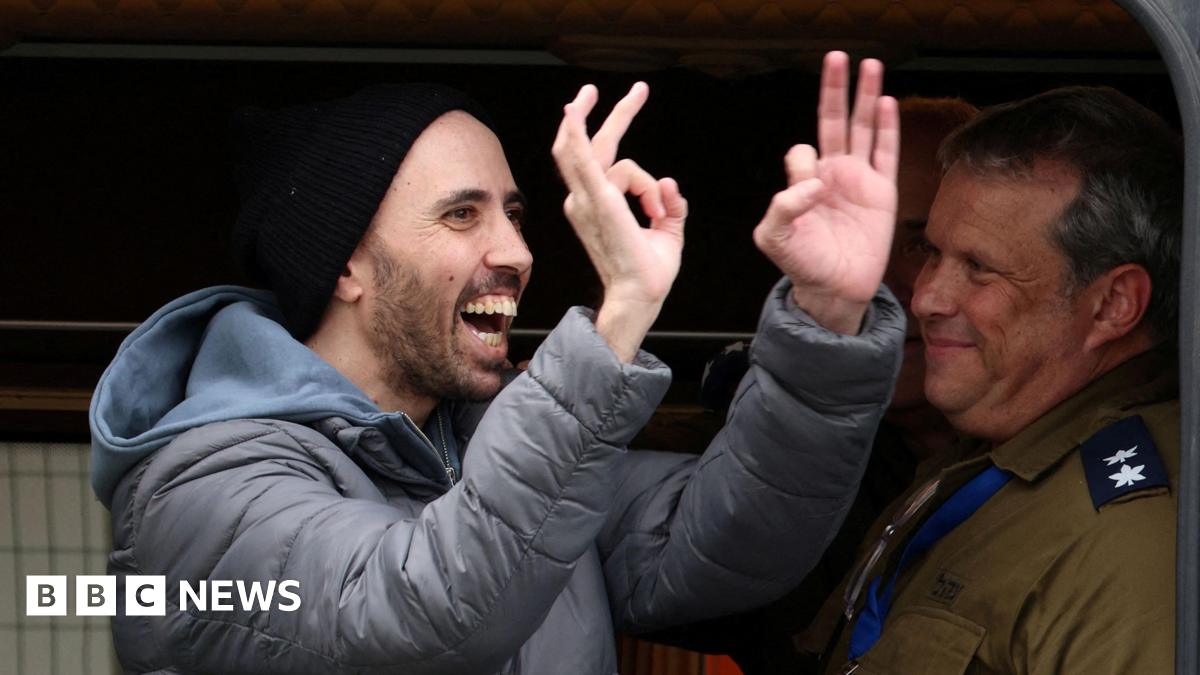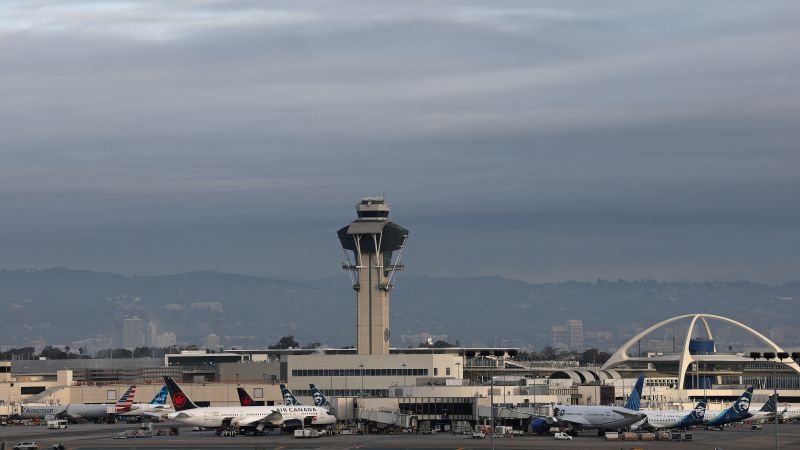Analyzing The German Election: Impact On Europe And Beyond

Table of Contents
Analyzing the German Election: Impact on Europe and Beyond
Berlin, Germany – The recent German federal election, held on September 26, 2021, resulted in a significant shift in the country's political landscape, sending ripples throughout Europe and beyond. While the election saw a decline in support for Angela Merkel's CDU/CSU bloc, it ultimately led to a three-way coalition government, a scenario that presented both opportunities and challenges for Germany and the wider European Union. The election’s results have profound implications for the EU's future direction on issues ranging from climate change to economic policy and the bloc's relationship with global powers.
The election saw the Social Democratic Party (SPD), led by Olaf Scholz, emerge as the largest party, albeit with a relatively narrow margin of victory. The CDU/CSU, under Armin Laschet, suffered a substantial loss, marking the end of an era of CDU/CSU dominance in German politics that spanned over 16 years under Angela Merkel's leadership. The Green Party, led by Annalena Baerbock and Robert Habeck, experienced a significant surge in popularity, becoming the third-largest party, reflecting a growing public concern about climate change and environmental protection. The Free Democratic Party (FDP), led by Christian Lindner, also played a crucial role, securing enough seats to participate in the coalition negotiations.
The formation of a coalition government between the SPD, the Greens, and the FDP – often referred to as the "traffic light coalition" due to the parties' colors – was a lengthy and complex process. The three parties, with significantly different policy priorities, had to compromise on a range of issues to forge a governing agreement. The resulting coalition agreement, published in November 2021, outlined a comprehensive agenda for the new government, covering areas such as economic policy, climate change, and foreign affairs.
Economic Policy and Social Welfare: The coalition agreement emphasized a focus on sustainable economic growth, incorporating social justice and environmental considerations. It included plans to increase the minimum wage, invest in infrastructure, and promote digitalization. The coalition also agreed to increase spending on education and childcare, aiming to improve social mobility and address demographic challenges. These policies signify a shift towards a more interventionist economic approach compared to the previous government's emphasis on fiscal austerity.
Climate Change and Environmental Protection: The election highlighted the growing importance of climate change as a key political issue. The Greens, with their strong environmental platform, played a significant role in shaping the coalition's climate policy. The agreement committed Germany to ambitious climate targets, including a faster phase-out of coal-fired power plants and increased investment in renewable energy sources. This commitment reflects a broader European trend toward prioritizing green initiatives and aligning with the goals of the Paris Agreement.
Foreign Policy and International Relations: The new government continued Germany's commitment to multilateralism and its role within the European Union. However, the election also signaled a potential shift in Germany's approach to foreign policy, with a greater emphasis on assertive diplomacy and a more proactive role in international affairs. This was evident in the government's response to various global crises, including the situation in Afghanistan and the ongoing tensions with Russia.
Impact on Europe: The German election had a significant impact on the European Union. The new government's commitment to strengthening the EU, combined with its focus on climate action and economic reform, provided impetus for further integration and reform within the bloc. However, the coalition's internal dynamics and the need to balance differing policy priorities also presented challenges for effective EU cooperation. The government's approach to the EU's budget and its position on issues such as migration and asylum policy will continue to shape the EU's overall trajectory.
Long-Term Implications: The 2021 German federal election marked a turning point in German and European politics. The formation of the traffic light coalition, while initially seen as a potentially unstable arrangement, demonstrated the capacity for compromise and cooperation among parties with diverse ideologies. The coalition's agenda, focused on climate action, economic reform, and social justice, will have lasting implications for Germany's domestic policies and its role within the European Union and the wider international community. The long-term success of this coalition government, however, will depend on its ability to deliver on its ambitious promises and navigate the challenges that lie ahead. The next few years will be crucial in assessing the true impact of this historic election.

Featured Posts
-
 Breakthrough In Israel Hostages Freed But Prisoner Deal Stalled
Feb 25, 2025
Breakthrough In Israel Hostages Freed But Prisoner Deal Stalled
Feb 25, 2025 -
 After Tragedy Strikes A Mothers Plan For Revenge Backfires
Feb 25, 2025
After Tragedy Strikes A Mothers Plan For Revenge Backfires
Feb 25, 2025 -
 Actors Off Camera Candid Photos From Movie And Tv Sets
Feb 25, 2025
Actors Off Camera Candid Photos From Movie And Tv Sets
Feb 25, 2025 -
 Russias Ukraine War The Silent Death Toll
Feb 25, 2025
Russias Ukraine War The Silent Death Toll
Feb 25, 2025 -
 Los Angeles Delta Flight Diverted Passengers Safe After Smoke Emergency
Feb 25, 2025
Los Angeles Delta Flight Diverted Passengers Safe After Smoke Emergency
Feb 25, 2025
Latest Posts
-
 Is A Dogecoin Dividend Feasible Assessing Trumps Economic Proposal
Feb 25, 2025
Is A Dogecoin Dividend Feasible Assessing Trumps Economic Proposal
Feb 25, 2025 -
 The Potential Fallout Examining Trumps Proposed Dogecoin Dividend
Feb 25, 2025
The Potential Fallout Examining Trumps Proposed Dogecoin Dividend
Feb 25, 2025 -
 Musk Seeks Accountability Explanations Demanded From All Federal Workers
Feb 25, 2025
Musk Seeks Accountability Explanations Demanded From All Federal Workers
Feb 25, 2025 -
 Lockerbies Legacy A Mother Creates A Powerful Memorial To The Victims
Feb 25, 2025
Lockerbies Legacy A Mother Creates A Powerful Memorial To The Victims
Feb 25, 2025 -
 Analyzing The Landscape A Look Ahead To Germanys 2025 Federal Vote
Feb 25, 2025
Analyzing The Landscape A Look Ahead To Germanys 2025 Federal Vote
Feb 25, 2025
